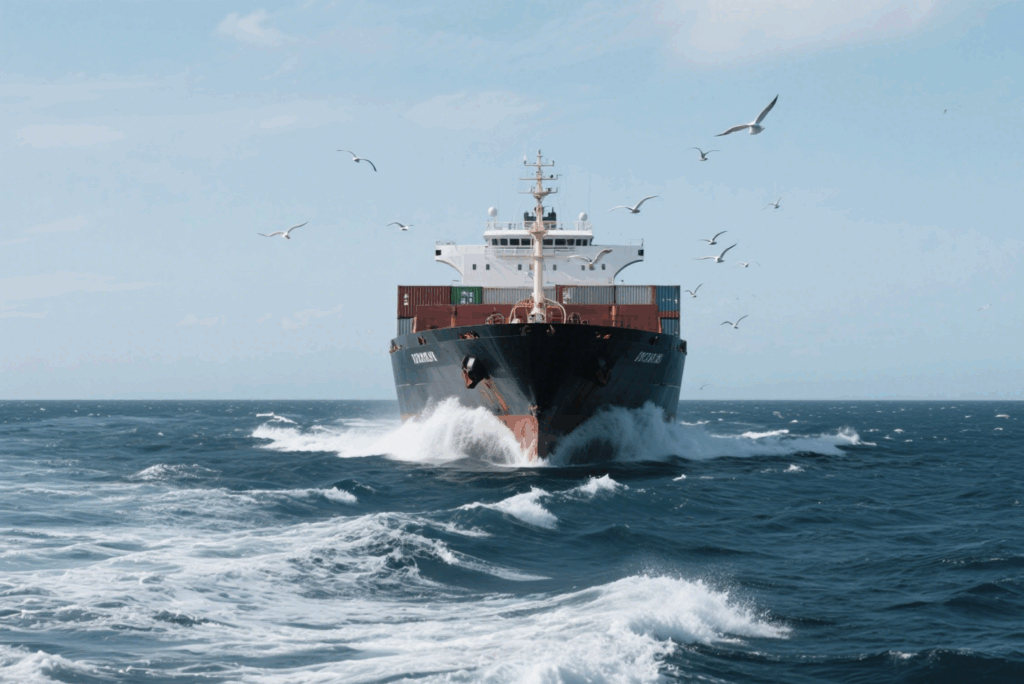China shipping Morocco has grown rapidly as trade between Asia and North Africa expands. Morocco imports a wide variety of goods from China, including electronics, textiles, machinery, and building materials. Whether by sea, air, or courier, choosing the right shipping method determines delivery speed, reliability, and overall costs.
This guide provides a complete overview of China shipping Morocco, covering what it is, how it works, transportation options, shipping terms, challenges, and—most importantly—real shipping case studies with cost breakdowns and transit times. By the end, importers will know how to optimize logistics, avoid common pitfalls, and secure reliable freight solutions.
What is China Shipping Morocco?
China shipping Morocco refers to freight services that move goods from Chinese ports like Ningbo, Guangzhou, or Shanghai to Moroccan ports such as Casablanca, Tangier, and Agadir.
It includes sea freight, air freight, and courier solutions, depending on shipment size and urgency.
- Sea freight dominates due to Morocco’s well-developed ports.
- Air cargo is used for urgent goods.
- Courier services support small parcels and e-commerce.
What Does It Do?
Shipping between China and Morocco enables smooth international trade by:
- Transporting goods securely in containers or pallets.
- Handling customs documentation and clearance.
- Providing cost-efficient transport for both bulk and small shipments.
- Linking Morocco’s growing industries—textiles, automotive, and construction—with Chinese suppliers.
Forwarders and shipping lines ensure seamless end-to-end delivery.

What Does It Do in Different Modes of Transportation?
| Mode of Transport | Average Cost | Transit Time | Best For |
|---|---|---|---|
| Sea Freight (FCL) | $2,100–$3,200 per 20GP | 28–35 days | Bulk goods, machinery, furniture |
| Sea Freight (LCL) | $35–$55 per CBM | 30–38 days | Small and mid-size shipments |
| Air Freight | $6–$9 per kg | 5–8 days | Urgent cargo, electronics |
| Courier / Express | $7–$12 per kg | 3–6 days | Samples, e-commerce orders |
- Sea freight China to Morocco is the cheapest for large volumes.
- Air freight China to Morocco is preferred for electronics and fast-moving items.
- Courier shipping supports e-commerce sellers in Morocco.
“Successful China–Morocco shipping requires more than choosing the cheapest rate. It depends on reliable partners, accurate documents, and smart planning.” — Logistics Expert, Top China Freight
Relevant Terms and Conditions
- Bill of Lading (B/L): Proof of carriage for sea freight.
- Airway Bill (AWB): Document for air cargo.
- Incoterms: CIF and FOB are most used for Morocco trade.
- Import Duties: Vary by product type; Morocco applies tariffs + VAT (20%).
- Container Sizes: 20GP, 40GP, 40HQ available.
Differences in Performance in Different Countries
- China → Morocco: Transit time 28–35 days, moderate cost.
- China → France: Faster customs but slightly higher cost.
- China → Egypt: Shorter routes but heavier customs procedures.
- China → West Africa: More delays and higher charges due to port congestion.
Morocco’s developed ports like Casablanca provide better efficiency than some neighboring countries.
How to Avoid Problems in China Shipping Morocco
Common Issues & Solutions
- Port Congestion: Use Tangier Med as an alternative to Casablanca.
- Delays: Work with reliable shipping lines and forwarders.
- High Costs: Consolidate cargo for better rates.
- Customs Rejections: Ensure certificates of origin and invoices are accurate.
Real-World Case Studies
Case 1: Sea Freight (China → Morocco)
📍Cargo: 1×40HQ container textile fabrics
📍Origin: Ningbo, China
📍Destination: Casablanca, Morocco
📍Cost Breakdown:
- Ocean freight: $3,100
- Local charges in China: $420
- Import duties & VAT: $2,050
- Inland delivery (Casablanca → Rabat): $380
- Total: $5,950
📍Transit Time: 31 days
📍Result: Moroccan garment factory received raw material on time, avoiding stockouts.
Case 2: Air Freight (China → Morocco)
📍Cargo: 850 kg electronics
📍Origin: Shenzhen
📍Destination: Casablanca
📍Cost Breakdown:
- Air freight: $7.2/kg × 850 = $6,120
- Documentation & handling: $480
- Import duties: $1,750
- Total: $8,350
📍Transit Time: 6 days
📍Result: Electronics retailer stocked high-demand items before holiday sales.
Conclusion
China shipping Morocco plays a vital role in linking suppliers and buyers across continents. Whether using sea freight for bulk goods, air cargo for urgent shipments, or courier services for e-commerce, Morocco importers can benefit from strategic logistics planning.
By working with an experienced freight forwarder and shipping line, businesses avoid delays, reduce costs, and ensure smooth delivery. For customized solutions, visit Top China Freight and consult logistics experts.
Conclusion
Understanding what is SLI in shipping is essential for anyone involved in global trade. The Shipper’s Letter of Instruction is more than just a form — it is a strategic tool that ensures your cargo moves smoothly, your documents remain accurate, and your shipment stays compliant with international regulations.
By clearly outlining shipping instructions, authorizing your freight forwarder, and preventing costly errors, the SLI helps exporters maintain control over the logistics process from origin to destination. In today’s competitive and regulation-heavy shipping environment, using an SLI is not just a best practice — it’s a safeguard for your business success.
Request a Quote
Need a tailored solution for your shipping from China?
Let TJ China Freight Forwarder assist you with reliable, cost-effective service.
FAQ:
Q1.Which Moroccan ports handle most shipments from China?
Casablanca and Tangier Med are the main hubs.
Q2.Do Chinese shipping lines have offices in Morocco?
Yes, many lines partner with local agents in Casablanca and Tangier.
Q3.What documents are needed for importing electronics from China to Morocco?
Certificate of Conformity, Commercial Invoice, and Bill of Lading.
Q4.Which Moroccan industries rely heavily on imports from China?
Textiles, construction, automotive, and electronics.
Q5.How can small Moroccan businesses import cost-effectively?
By consolidating shipments under LCL or courier services.
